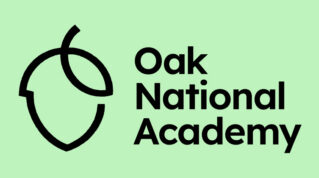The Government plans to re-launch Oak National Academy as a new government arm’s-length body (ALB) providing free curriculum resources this autumn. But the new Oak will start with a “drastically reduced curriculum” after United Learning decided not to sign over its intellectual property. And that’s just the start of its problems.
United Learning’s chief executive, Sir Jon Coles, says the ALB will “put further strain on already stretched public funds and risk severely damaging teacher choice and learner outcomes”. Meanwhile, the British Educational Suppliers Association (BESA) is seeking a judicial review of the decision to award it £43 million.
The DfE states that “Oak […] will ensure that high-quality lessons are available nationwide for the benefit of all children”, adding that its plans are designed “to ensure that teachers are able to manage their workload and deliver a world-class curriculum”.
This type of system is adopted in countries such as Hungary, some Indian states, and some Latin American countries. And everywhere it has been tried, the result of a state-funded “publisher” has not only challenged democratic processes but led to poor learning materials. But could it be different here?
Who’s in charge?
Detractors argue that Oak represents a de facto centralised curriculum that goes beyond the national curriculum by empowering the government to specify how teaching should be sequenced and delivered. Oak’s leaders meanwhile argue that, as an ALB, their curriculum design will be independent and free of ministerial interference.
In fact, its articles of association show that the DfE will retain substantial control over the ALB, and this could lead to conflict of interest claims. Ultimately, the cabinet office will officially classify Oak either as an ‘executive agency’ (independent and accountable to ministers) or as an ‘executive non-departmental public body’ (which usually get their money from departmental budgets and receive strategic direction from departments who ‘sponsor’ them).
If it is the latter – the most likely conclusion based on the articles of association – this will effectively nullify the body’s claim to independence. A judicial review may well be in the offing as a result, with schools’ representatives arguing that the new body contravenes their right under the Education Act to offer teaching and learning that is best for their pupils.
Economic advantage
Articles of association aside, BESA’s main argument for a judicial review right now appears to be that implementing this change to Oak amounts to a public subsidy that breaches UK law. When a public body seeks to provide financial assistance to a private entity, it needs to consider this within the confines of the Subsidy Control Act 2022. These regulations seek to allow government entities to achieve their policy objectives while limiting the potential harmful impacts of such activities on competition, and there is a strong argument to say that the plans for Oak conflict with this principle.
For support to be considered a subsidy, it must meet four criteria: it must be awarded by a public body, confer an economic advantage, benefit one enterprise over others, and/or impact domestic or international trade. It’s clear from the outset that this decision is likely to close some enterprises, reduce the size of the private sector and in effect create a nationalised monopoly (which competition authorities define legally as a firm holding over 25 per cent of the power within a market).
And that’s just the start
Even if a judicial review is unsuccessful, an Oak monopoly (with effective control over quality and price) wouldn’t be in the clear. With educational institutions expected to buy the license for the products, Oak and the government will also be open to civil challenges for abuses of market power under chapter II prohibitions in the Competition Act.
Then there’s all the new intellectual property that will be created in the development of its curriculum packages and will be the sole property of Oak. Several areas of intellectual property legislation could cause it problems, including copyright, trademarks and patents. How will the ALB establish ownership? And how will they enforce it?
In all, the government could find itself wrapped in legal challenges for some years, or at least until the next general election, and at a significant cost in addition to the £43 million already allocated to this project.















Your thoughts